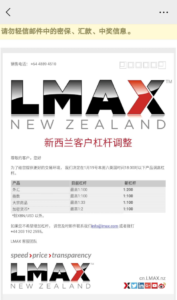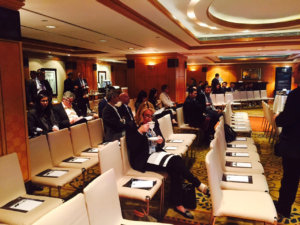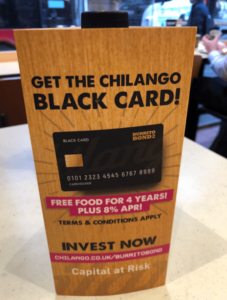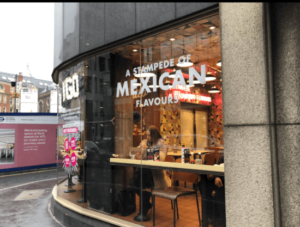“Mind The Gap!” – The life and times of a man on the move Episode 29
Prime of prime or retail? Trading experience intended to lose or gain, the burrito-based future of FX, and the Eurostar about to become a one-way street

In this weekly series, I look back on what stood out, what was bemusing, amusing and interesting during my weekly travels, interesting findings within the FX industry and interaction with an ever-shrinking big wide world. This is purely observational and for your enjoyment.
Monday: When is an exchange not an exchange?
If you’ll pardon the pun, this Monday consisted of an exchange of views between me and a longstanding colleague of mine in London, who raised an important issue that really does merit further and wider discussion, not least because it has been mentioned before over recent times especially within non-bank liquidity circles.
This particular matter centers around what exactly constitutes a provider of institutional liquidity to brokerages, and how the prime of prime brokerage model should operate according to its textbook definition.
I am occasionally drawn into conversation with incensed members of the prime of prime sector with what appears to be perplexing marketing efforts made by those whose target market should only be takers of institutional liquidity but blur the lines by operating direct retail trading as well.
As this week got off to a start, London’s LMAX which purports to operate multiple institutional execution venues for electronic foreign exchange trading and has since inception marketed itself as the world’s only multilateral trading facility (MTF) for electronically traded FX, has established a b-book retail brokerage, offering 200:1 leverage, in New Zealand from which to directly approach retail clients in mainland China.
Indeed, diversification is vital in this rapidly evolving industry, and in order to offer a range of good quality products to a wider audience than the one that has become completely over-targeted by so many also-rans, however LMAX began its business as a highly-sophisticated provider of Tier 1 liquidity to brokerages and positions itself among prime of prime brokerages, meaning that its target audience is retail brokerages and its product range is marketed as a ‘no last look’ execution based MTF, and an ‘exchange’ from which brokerages can source Tier 1 liquidity.

By operating a retail brokerage with 200:1 leverage and fixed trading terms set by LMAX, the company demonstrates that not only is this a b-book retail brokerage rather than an exchange model that provides directly sourced and aggregated tier 1 liquidity, but it also competes against LMAX’s broker clients, especially given that direct retail order flow is a core business activity of the company.
In the past, I have confronted companies at trade exhibitions in mainland China that use the words ‘prime’ or ‘exchange’ or even in some cases ‘venue’ in order to align themselves at a level that extends only as far as marketing materials with bona fide prime of primes and non-bank market makers, in some cases I have asked who their prime broker is, to be told Goldman Sachs, Societe Generale, Credit Suisse along with non-bank execution at XTX Markets or Hotspot, all of which has turned out to be far from reality, when actually the ‘prime’ is a MetaTrader 4 white label brokerage executing its trades on its own desk.
Basically, a retail brokerage which operates a b-book, yet is onboarding brokerages rather than retail clients and then b-booking their trades when the broker thinks that its clients are accessing a combination of tier 1 bank liquidity and non-bank ECNs.
Don’t get me wrong, there is absolutely no harm whatsoever in b-book execution if it is correctly marketed as a retail market making service, and there is nothing wrong with conducting risk management according to a price feed by b-booking trades as many top quality retail FX and CFD firms with public listings and 30 years in operation do.
The difference is that, as an example, IG Group is a retail firm, calls itself a retail firm, and openly onboards retail clients without approaching brokerages to attempt to sell them ‘institutional’ liquidity via their own retail b-book and then compete with their own customers.
I contacted the Asia Pacific division of LMAX to ask their opinion on this, my question having been received by a senior executive at the firm, who did not reply.
Tuesday: FX analysts and the trading experience
Once again, a relatively late night conversation with a learned colleague in Australia (well, it wasn’t late night for him!) led to the subject of what should constitute the ‘trader experience’.
Most companies with any modicum of sustainability nowadays are more than well aware that ensuring a high quality, engaging and accurate experience for traders is the only way forward, especially when new outsiders like Robin Hood, Revolut and Chilango (I’ll come to that later!) are offering extremely modern access to all areas of financial services to a young and fresh client base who have not lived through the lead-buying and conversion-orientated dark days of the gaming-inspired latter part of last decade.

Today’s new entrants are not me-too MetaTrader white labels with a dubious lead-sourcing ethos and a previous ‘career’ in gaming or affiliate marketing hawked around the fruit markets of the Eastern Mediterranean. Quite the contrary, in fact. They come from London and Singapore, and are highly advanced, properly regulated and are becoming very successful at rivaling retail banks rather than seeing everyone as a ‘lead’ or a ‘deposit conversion’.
Hence, my late night ramblings led onto a subject that my Australian colleague has a particular interest in, that being how to ensure a comprehensive yet straight forward experience for traders.
“So we have what I see the industry promoting ‘the trader experience’ – as the focus of their product range appears to continue to be based on faster execution, better prices and spreads, easier drawing lines on charts, executing from the chart, and better education videos” he said.
“This really is very standardized across most of the retail business, and I have to wonder what does this mean when referring to the ‘trader experience?” he queried.
“it seems this implies, at least to me, that most traders trade not to ‘make money’ but for what money can bring in terms of prestige, shiny new things and that it is an ‘experience’, that being the emotional benefits and not the utilitarian benefits” he said.
This resounded with me as something I have never really heard before outside the affiliate marketing-orientated boiler rooms of the late-2000s Middle East.
“I think in these circles, it is seen as a bit of a game by many, which of course does not apply to the professionals but they really are only around 1% of all retail customers” he said.
“So, currently, you have digital trading advisers, social trading, automated trading programs to remove the human bias, basically no-coding-required trading programs, and now we will see ‘off the shelf’ machine learning trading tools for retail – maybe even unstructured data to trade, and I make a bet to myself, the dial on client losses wont budge in the aggregate with all these new shiny tools” he said.
“I am quite sure that as long as this type of direction is adhered to but simply packaged under different terminology, the 80:20 loser to win ratio stays the same which it should as it is a universal law of nature, but it feeds the machine, brings in new retail cohorts to trade the markets, and sustains the dreams” he said.
“I really have to ask you, what do you think would happen if a FX-CFD margin broker could say that 80% of their retail clients make money?” he asked me. “Is this even possible? However what if it was possible? What would this broker model look like? Perhaps it would be more like today’s Saxo Bank, JDF or something more hybrid, which is where the industry is heading” he said.
He is indeed spot on. I was at a private conference with Saxo Bank’s senior executives two years ago, in which Jennifer Hansen, Saxo Bank’s Global Head of Sales Strategy & Execution explained in detail how retail firms need to move their product and service range forward, and looked at some of the largest internet firms in the world such as Alibaba and Amazon as a model. She was absolutely right at the time, and this applies even more now.
My Antipodean colleague then explained “I think that if we are all heading toward a business model that essentially supports successful traders rather than limit them, as per some of the Cyprus and Malta-based brokers over the past 10 years inserting terms which cover aspects such as unauthorized trading profits which are not fully deciphered until the terms and conditions are read very carefully, then here we go to where the technology is progressing from art to science and where the A and B Book can be properly used to optimize the hedge book program to squeeze all the more juice out of $ per Lot.”
“Centroid is one which is an impressive program, but I think this is more for Risk geeks than marketing, however I wonder whether will brokers buy in. If I understand their thinking, most brokers think first that cost of acquisition has more impact on earnings and secondly, they think that most retail clients will lose their wedge and thirdly, that optimised hedging is more about dampening earnings volatility than increasing $ per Lot and ultimately $ per Lot is pretty stable, so they watch the costs” he said.
There is not much to argue with there, for sure. “These are marketing people with rented technology in most cases, hence in many circles there is not much progression then on the ultimate trader experience = the retail trader actually meeting their trading $$$ objectives, hence perhaps this meandering of thinking is going somewhere, just not anchored or perhaps ultimately a futile exercise given retail traders bias to ‘experience’ than learning the trade.”
Food for thought, talking of which………
Wednesday: Investing in a burrito. Don’t mind if I do
For those who still think that buying leads and treating an increasingly astute customer base as ‘conversions’ and ‘retentions’ could do well to visit some of London’s fast food restaurants in order to measure the extent of the dinosaur effect that was always inevitable.
Not only is that completely obsolete but so is the actual sales call center itself. Perhaps Plus500 knew what they were doing all along!

Now, the new entrants are going one step further. Yes, perhaps we could say that Hargreaves Lansdown, now the largest financial services company in the UK, started it all with its centralized Vantage platform, however London’s new angles with which to approach financial services continue to get more inventive.
Nestling among the head offices of Nomura, RBS, various prime of prime brokerages, Revolut, TigerWit and over 100 financial technology development companies in the Square Mile, I noticed a fast food restaurant serving freshly made Mexican food in cardboard take-out boxes which customers can either consume at their desks, or on the simple, white formica tables in the restaurant.
On the window of the Chilango restaurant, alongside the catchy “A Stampede of Mexican Flavors” slogan, was a disclaimer saying “Financial Promotion Approved By Resolution Compliance Ltd. Your Capital Is At Risk.”
Capital at risk? This could not be a simple FCA-approved disclaimer for a loyalty card or store card, because it mentioned capital at risk, hence I immediately saw trading-related connotations, so I thought I’d take a closer look.
Once inside, a plethora of smartly-dressed 20-and-30-somethings were consuming what appeared to be a very well presented series of North American fayre, all in boxes and presented as healthy yet tasty, and on each table was a printed brochure offering the restaurant’s own brand of investment product – yes investment, not credit or store card – an actual trading facility.
The product is, rather amusingly, called the “Burrito Bond”, and offers 8% APR as an average return on investment as well as free food at any of the 11 Chilango outlets which are in London and Manchester for four years.
Interestingly, on further research, I could see that the firm certainly has eaten (get it?!) into the potential revenues of the retail FX brokerage sector. Contrary to seeing its audience as a target and looking to gain deposits and then take them, retail bonds are low risk funds for the purpose of gaining a steady revenue for good quality, domestic market customers who will remain long term.
There is no more affiliate marketing – effectively the restaurant becomes the affiliate for the bond issuer, and there is no layered call center with people called “John Smith” From “England” calling you from Ramat Gan five times a day from several different companies to try to force a $200 deposit before disappearing with it.
Customers feel like they are part of a sort of benevolent club, and the clientele can be viewed by simply going into a restaurant – suited city workers with good careers and a good salary, basically a great demographic.
The figures show, too. The company made net sales of £10.3 million last financial year, and expects over £2 million in restaurant EBITDA in the current financial year. Heads of major restaurant chains are among the investors – no gaming underworld here.

Rather in keeping with the ultra-modern trend, the firm monitors its product range take up electronically, stating that it has experienced 5.3% positive like-for-like sales, and considers 100% of restaurants profitable. Imagine if all of your IBs were profitable and loyal?!
Whilst the idea is not so new, its execution is and that is what industry participants should focus on here.
Chilango first used the crowdfunded debt offering back in 2014 when the company raised over £2.1 million on Crowdcube. At that time, about 700 investors participated in an offer that combined a financial return with restaurant perks. This time, the restaurant decided to go it alone and is self-hosting the offer and that is the interesting matter. No conflict of interest.
If the retail sector in any other region than London, Sydney or North America wants to compete seriously, then this is effectively the new competition. Evolution therefore must be replaced by revolution.
Thursday/Friday: No deal = massive deal!
The airwaves, the television, the internet and the free newspapers on the London Underground resounded with unfounded scaremongery at the end of last week. As I walked through the tunnels of the Northern Line, the U-Turn which is being attempted by the socialist European Parliament as the reality sets in that the golden goose – basically London – is about to become master of its own destiny, the morally and economically bereft European dictators, er, I mean politicians, are attempting to cancel the United Kingdom’s exit from the shackles of the EU.
This of course will not happen, and the UK will indeed be going it alone, however the inept politicians on both sides of the English Channel cannot see the wood for the trees.

Quite simply, what I see in the newspapers and on the internet is the absolute reverse of the actual reality.
When the UK leaves the EU in just a few weeks’ time, European and global firms will flock to London. It is already happening and this is because the UK economy is one of the most diversified in the world is a center for the best talent in so many sectors, and no longer having to sponsor the European hole in the bucket and pay for economic delinquency, as well as removing the EU’s grip on how and where the UK does its business and with which nations, London will become even more of a global center than it already is.
If I were a small brokerage, or a large technology provider, I’d be opening offices in London and Singapore.
Wishing you all a great week ahead!









